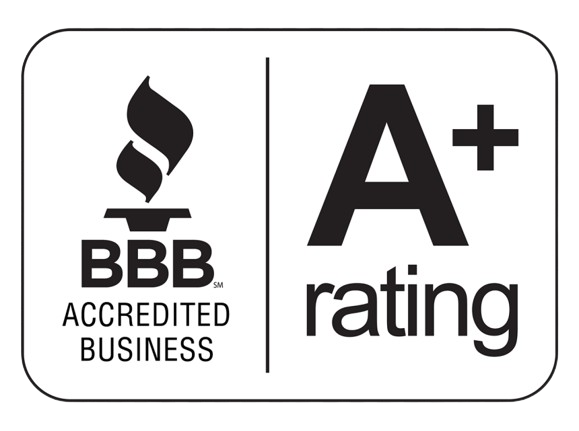Moving to a new home is a significant undertaking that requires careful planning and organization. One of the crucial decisions you’ll face when planning your move is: “How many movers should I hire?” The number of movers you hire can greatly impact the efficiency and cost of your move. In this blog post, we’ll guide you through the factors to consider and help you make an informed decision.
Why Hiring Movers is Essential
Moving involves more than just transporting your belongings from one place to another. It also entails ensuring the safety of your possessions, managing your time effectively, and minimizing the stress associated with moving. Professional movers can play a vital role in making your move a success.

Assessing Your Moving Needs
Assessing your moving needs is a crucial first step in planning a successful relocation. Whether moving to a new home, office, or a different city, evaluating your specific requirements will help you streamline the process and reduce stress. Here are some key considerations to help you assess your moving needs:
Type of Move: Determine the type of move you’re undertaking. Is it a residential move, a commercial move, a long-distance move, or a local move? Different types of moves come with varying challenges and requirements. Learn about “What is Residential Moving” and what to do if you’re planning one.
Timeline: Consider your timeline for moving. Are you in a hurry, or do you have a more flexible schedule? Your timeline will influence your move’s planning, packing, and organization.
Budget: Determine your budget for the move. Knowing how much you can spend will help you make important decisions, such as hiring professional movers or handling the move yourself.
Size and Weight of Belongings: Assess the size and weight of your belongings. This information is crucial for selecting the proper transportation, packing materials, and manpower needed for the move.
Distance: Calculate the distance of your move. If it’s a long-distance move, you may need to plan for overnight stays, additional fuel costs, and specific transportation requirements.
Packing Services: Decide if you want to pack your belongings or hire professional packing services. The complexity of your items and your available time will influence this decision.
Special Items: Identify any special or fragile items that require extra care during the move, such as artwork, antiques, or electronics. Make a plan for their safe transport.
Storage Needs: Determine if you need storage facilities for items that won’t be immediately relocated to your new location. This is particularly important if you’re downsizing or experiencing a gap between move-out and move-in dates.
Logistics: Consider any specific logistics related to your move, such as building restrictions, parking issues, or the need for moving permits in urban areas.
Family and Pets: If you have a family or pets, consider their needs during the move. Ensure everyone’s comfort and safety during the process.
Utilities and Services: Don’t forget to arrange to transfer utilities, postal services, and any necessary installations at your new location.
Paperwork: Gather and organize all the necessary paperwork, including contracts, moving estimates, insurance documents, and any permits required for your move.
Insurance: Evaluate your insurance coverage. If your belongings are valuable, consider additional moving insurance to protect against potential damage or loss.
Professional Movers: Decide whether to hire professional movers or rely on friends and family for help. Professional movers can save you time and reduce the physical strain, but they come at a cost.
Checklists: Create detailed checklists for packing, labeling, and keeping track of your belongings during the move. A well-organized plan will help ensure nothing is forgotten.
Communication: Keep open lines of communication with your movers, service providers, and any involved parties to prevent any last-minute issues.
By carefully assessing your moving needs and addressing each of these considerations, you’ll be better prepared for a smooth and successful move. It’s essential to plan, stay organized, and be flexible in case unexpected challenges arise during the moving process.
Determining the Right Number of Movers
Determining the correct number of movers for your move is crucial for a smooth and efficient relocation. The number of movers you need depends on various factors, including the size of your home, the amount of furniture and belongings, the distance of the move, and your physical capabilities. Here’s how to assess and determine the right number of movers:
Size of Your Home: Consider the number of bedrooms or square footage of your current residence. Larger homes typically require more movers to handle the furniture and belongings.
Amount of Furniture and Belongings: Assess the quantity of furniture and belongings you have. More items will require additional manpower. Create an inventory to clearly understand what needs to be moved.
Heavy or Bulky Items: If you have heavy or bulky items such as pianos, safes, or large appliances, you’ll likely need extra movers with the strength and expertise to handle these items safely.
Stairs and Elevators: Evaluate the accessibility of your current and new locations. If there are multiple flights of stairs or if you need to use elevators, this will slow down the moving process and may require more movers.
Distance of the Move: A long-distance move may require additional movers due to the loading and unloading process, especially if you’re handling the move yourself. For local moves, you might need fewer movers.
Your Physical Abilities: Consider your physical capabilities and those of anyone helping you. If you or your friends and family are not physically capable of moving heavy items, hiring professional movers is wise.
Time Constraints: If you’re on a tight schedule, having more movers can expedite the moving process, reducing the overall time needed for the move.
Moving Company or DIY: If you’re hiring a professional moving company, they will typically assess your needs and provide you with the appropriate number of movers. If you’re doing it yourself, consider enlisting the help of friends or family, but be realistic about their availability and physical abilities.
Furniture Disassembly: If furniture requires disassembly and reassembly, more movers can make this process quicker and more efficient.
Professional Advice: Consult with a professional moving company or moving expert for recommendations on the correct number of movers based on your specific circumstances.
It’s generally a good idea to err on the side of caution when determining the number of movers you need. Extra help can make the move smoother and reduce the risk of injuries or damage to your belongings. Professional moving companies often have experience in assessing the manpower required for various moves, so don’t hesitate to consult with them for guidance.
Budgeting for Your Move
Budgeting for your move is a crucial step in ensuring that the entire process goes smoothly without causing unnecessary financial stress. Here are some key steps to help you create a budget for your move:
- Estimate Moving Costs: Begin by estimating the various costs associated with your move. These can include:
- Hiring professional movers or renting a moving truck.
- Packing supplies (boxes, packing tape, bubble wrap, etc.).
- Labor costs (if you’re hiring movers or helpers).
- Transportation costs (fuel, tolls, parking, or shipping fees for long-distance moves).
- Storage fees, if necessary.
- Insurance to cover your belongings during the move.
- Temporary accommodation costs (if there’s a gap between move-out and move-in dates).
- Cleaning expenses for both your old and new homes.
- Utilities and connection fees at your new location.
- Obtain Multiple Quotes: If you’re hiring professional movers, obtain quotes from different moving companies. Compare their services, prices, and customer reviews to find the best fit for your budget and needs.
- Set a Realistic Budget: Based on your cost estimates and the quotes you’ve received, set a realistic budget for your move. Ensure you have some wiggle room for unexpected expenses.
- Track Expenses: As you prepare for the move, keep a detailed record of all your expenses, including packing materials, equipment rentals, and any unexpected costs that arise.
- Packing Wisely: Use your budget as a guide when purchasing packing supplies. Try to find affordable or free packing materials, such as collecting boxes from local stores or using items you already have.
- Reduce Clutter: Consider decluttering your belongings before the move. Sell, donate, or discard items you no longer need to reduce your moving load and potentially save on transportation costs.
- Timing: Schedule your move during the off-peak season if possible, as moving companies may offer lower rates during less busy times.
- DIY vs. Professional Movers: Decide whether you’ll move on your own or hire professional movers. DIY moves are usually more cost-effective but require more effort and time.
- Insurance: Assess your insurance needs. Determine if your homeowner’s or renter’s insurance covers your belongings during the move, and consider additional insurance if necessary.
- Plan for Food and Lodging: If you’re moving a long distance, budget for meals and accommodation during the journey, if needed.
- Emergency Fund: Set aside a small emergency fund within your budget to cover unexpected expenses that may arise during the move.
- Review and Adjust: Regularly review your budget as you progress through the moving process. Adjust your plan if necessary to accommodate changes or unexpected costs.
- Professional Help: If you’re unsure about budgeting for your move, consider consulting with financial experts or moving professionals who can provide guidance on cost-saving strategies.
By creating a detailed budget and sticking to it, you can reduce the financial stress associated with moving. Careful planning and tracking of expenses will help you make informed decisions and ensure that your move is as cost-effective as possible.
Hiring Professional Movers
Hiring professional movers can make the process of relocating significantly smoother and less stressful. Whether you’re moving locally or long-distance, professional movers can offer a range of services to meet your needs. Here are the key steps to consider when hiring professional movers:
- Research and Get Recommendations:
- Start by researching moving companies in your area. You can use online search engines, review websites, or ask for recommendations from friends, family, or real estate agents.
- Look for companies that are licensed, insured, and accredited by relevant organizations.
- Obtain Multiple Quotes:
- Contact several moving companies to get estimates. Ask for in-home assessments when possible, as this allows movers to provide more accurate quotes.
- Make sure you understand what services are included in the estimates, such as packing, loading, unloading, and transportation.
- Check Credentials:
- Verify the credentials of the moving companies, including their licensing, insurance coverage, and their Better Business Bureau (BBB) rating, if applicable.
- Review Contracts and Agreements:
- Carefully review the contracts and agreements provided by the moving companies. Pay attention to the terms and conditions, including the payment structure, delivery schedule, and insurance coverage.
- Understand Your Rights and Responsibilities:
- Familiarize yourself with the “Rights and Responsibilities” booklet provided by the Federal Motor Carrier Safety Administration (FMCSA) for interstate moves. This booklet outlines your rights and obligations when moving with professional movers.
- Check for Hidden Fees:
- Inquire about any potential hidden fees or additional charges that might apply, such as charges for stairs, long carries, or additional stops.
- Insurance and Valuation Coverage:
- Understand the level of insurance and valuation coverage offered by the moving company. Ask about options for additional coverage if you have valuable or fragile items.
- Scheduling and Availability:
- Confirm the availability of the moving company for your desired moving date. Book well in advance, especially during peak moving seasons.
- Packing Services:
- Determine whether you want the moving company to provide household packing services. This can save you time and ensure that your items are packed securely.
- Labeling and Inventory:
- Discuss how the moving company will label and inventory your items. Proper labeling and documentation can help with the organization of your belongings.
- Ask Questions:
- Don’t hesitate to ask the moving company questions about their processes, the equipment they use, and any specific concerns you may have about your move.
- Reviews and References:
- Read reviews and ask the moving company for references from previous clients to gauge their reputation and service quality.
- Prepare for Moving Day:
- On moving day, be present to oversee the process, answer any questions, and ensure everything is going according to plan.
- Tip Your Movers:
- If you’re satisfied with the service, consider tipping your movers as a token of appreciation.
- Feedback and Documentation:
- Provide feedback and documentation to the moving company regarding the condition of your items upon delivery.
By following these steps, you can hire a reputable and reliable moving company that meets your needs and ensures a successful and stress-free relocation. Hiring professional movers can be a wise investment in your peace of mind and the safety of your belongings during the move.
Conclusion
In conclusion, determining how many movers to hire is a crucial aspect of planning a successful move. It requires careful consideration of factors such as the size of your home, the amount of belongings you have, the presence of fragile or specialty items, and various logistical considerations. By following the guidelines in this blog post, you can make an informed decision and ensure a smooth and efficient move.
Save Time and Energy: Stop guessing and start benefiting from the expertise of our dedicated team. By availing our services at Gorilla Moves, you’ll not only save time but also conserve your energy for the more important aspects of your move. Contact us now!
FAQs: How Many Movers Should I Hire?
How do I determine the right number of movers for my move?
The number of movers you need depends on factors like the size of your home, the amount of furniture and belongings, and the complexity of the move. A good rule of thumb is to have one mover for every 150-200 square feet of living space.
What are the benefits of hiring more movers?
Hiring more movers can significantly speed up the moving process, reducing the time it takes to load and unload your belongings. It can also reduce the physical strain on each individual mover.
Can I move with just a few friends and family members instead of professional movers?
You can move with friends and family, but their physical capabilities and availability should be considered. Professional movers are experienced and trained, reducing the risk of accidents and damage.
Is there a minimum or maximum number of movers for a move?
There is no strict minimum or maximum number of movers, as it depends on the specifics of your move. Smaller moves might require just 2-3 movers, while larger or more complex moves may involve four or more.
What other factors should I consider when deciding how many movers to hire?
In addition to the size of your space and the number of items, consider factors like the presence of stairs or elevators, the distance between the moving truck and your home, and your own physical capabilities. These factors can influence the number of movers needed for a successful move.








